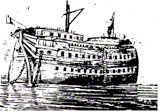
 |
|
August 2018 marks our 25th
year
making information available to you!
Long Island Surnames has been
an active resource for the Long
Island family history community since 1993. Through
the help of hundreds of long time regional
researchers we have compiled a searchable
database containing over 3,212,043 individuals,
1,215,933 families and 171,229 sources all directly
connected to the early settlers of Long
Island. It is an unparalleled regional
database available for your research.Please join us in our efforts to make accurate Long Island Family history information available to everyone. We verify data and correct constantly as new information becomes available. Reduce your research time and expense by becoming a member. Over three million Long Island ancestors and one million families - in one place - documented and easily searchable - download family Gedcom and pdf reports free, connect with others by by sharing your family information or simply make additions and corrections so others can benefit. Got a
research question, need
to update information?
Contact
links are available on every page. If it
isn't online we're always happy to
check our resources for you without charge -
all part of being a member of our Long Island
Surname family!!
Please join
us
and take advantage of the available
information while helping us support
our work at the same time
JOIN HERE $10 per month, $25 for 3 Months or $60 a year or pay by check to Long Island Genealogy 3 Apex Dr Coram, NY 11727. Please include an email address with your check so we can send you your login. |

A Note about British Prison
Ships . . . Memorial to martyred mariners
rededicated
[excerpts] Newark (NJ) Star-Ledger, August
26, 1997, by Bill Franz
Main Article